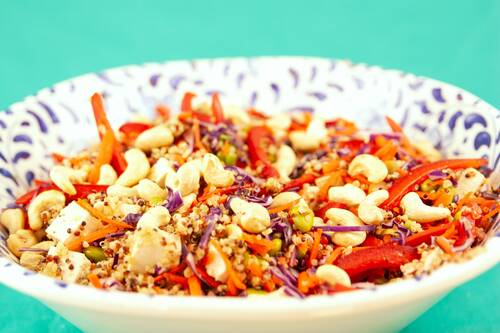Nutrition, Protein, Vegetarians / 25.11.2024
Role of Plant Proteins in Health and Disease Prevention
Plant-based proteins have garnered significant attention in nutrition studies due to their significant health benefits and ability to protect the body from chronic diseases. Given this, it's reasonable to assume that the growing popularity of plant-based diets, which promote healthy and sustainable lifestyles, provides ample evidence of their crucial role in maintaining health and preventing heart disease, obesity, and various cancers. A vital synthesis of important discoveries has influenced the growing significance of plant proteins in health. It demonstrates metabolic benefits, aids in the prevention of disease, and has ramifications for the environment and public health.












